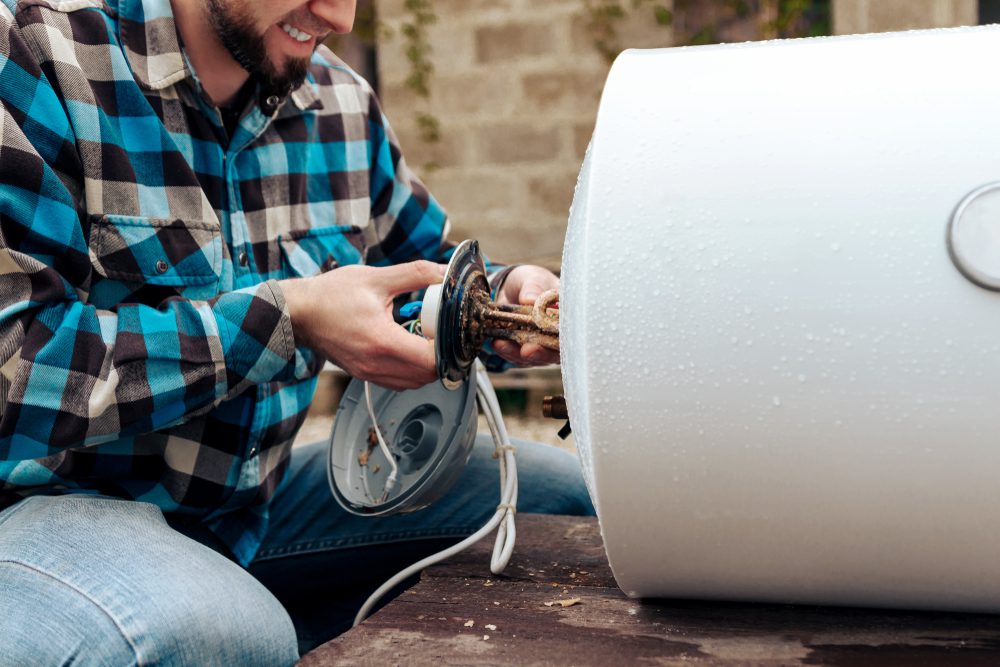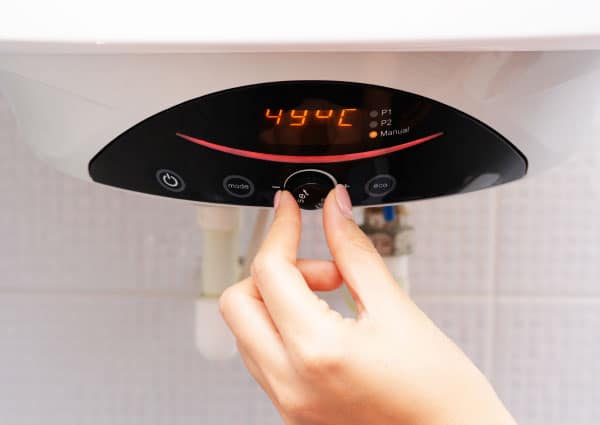Tackling the Typical Water Heater Crisis Scenarios
Tackling the Typical Water Heater Crisis Scenarios
Blog Article
This post listed below about Is Your Water Heater Leaking? is relatively enjoyable. Read it for your own benefit and decide what you think about it.

A water heater is just one of one of the most essential standard devices that can be found in a house. With hot water heater, you don't require to undergo the stress and anxiety of home heating water manually every single time there is a requirement to wash, do the laundry, or the dishes. Nevertheless, there is always a possibility that your water heater would act up as with many mechanical devices.
It is necessary to keep in mind any little malfunction and tackle it rapidly before things get out of hand. Many times, your water heater starts to malfunction when there is a build-up of debris as a result of continual usage. As a preventative measure, routine flushing of your hot water heater is suggested to avoid sediment buildup and protect against practical failing.
Common water heater emergency situations and also how to deal with them
Inadequate hot water
Dealing with a not enough supply of warm water can be aggravating. It might be that the hot water heater can't support the hot water demand for your home. To deal with this problem, you could attempt to change your heating unit's temperature level dial as well as wait on a couple of mins. If the issue continues, you can request the assistance of an expert plumber. Conversely, you can update your water heater to one with a larger ability.
Varying water temperature.
Your water heater could begin generating water of various temperatures typically ice cold or hot warm. In this circumstance, the first thing you do is to make sure that the temperature is readied to the preferred level. If after doing this, the water temperature level keeps changing throughout showers or various other activities, you could have a defective thermostat. There might be a requirement to replace either the heating or the thermostat system of your hot water heater.
Leaking hot water heater container.
In this circumstance, you need to turn off your water heating system, allow it to cool down, as well as meticulously look for the source of the issue. At times, all you require to do is to tighten up a few screws or pipe links in situations of small leaks. If this does not function and also the leakage persists, you may require to use the services of a specialist for an ideal replacement.
Stained or odiferous water
When this occurs, you need to understand if the issue is from the water or the storage tank resource. If there is no funny odor when you run cool water, after that you are certain that it is your water heating unit that is damaged. The stinky water can be triggered by rust or the build-up of microorganisms or debris in the water heating system tank.
Conclusion
Some property owners neglect little caution and also minor faults in their hot water heater device. This just brings about more damages and also a feasible full failure of your device. You must take care of your water heater faults as soon as they come near stay clear of more expenses and unneeded emergency difficulties.
With water heating units, you don't require to go with the stress of home heating water by hand every time there is a need to take a bathroom, do the laundry, or the dishes. It might be that the water heater can not support the warm water demand for your home. Your water heating unit might start producing water of different temperature levels usually ice cold or scalding warm. If there is no amusing scent when you run cool water, then you are particular that it is your water heater that is malfunctioning. The odiferous water can be caused by rust or the accumulation of bacteria or sediments in the water heating system tank.
What’s Wrong With My Water Heater?
Not Enough Hot Water
You probably encounter this problem in the shower or while washing dishes. As you run your water, you’ll notice it starting to cool down. Turning up the hot faucet may not work, or it may only heat the water for a short period. Your hot water probably comes back and works normally one or two hours after you use it up.
If you’ve never had enough hot water, your heater may be too small for your home. If you haven’t had a problem until recently, there’s probably something’s wrong with your heater’s thermostat. Try adjusting it to see if you can feel a difference. Even if the thermostat’s working, the heating element itself could have burnt out. It’s also possible that a clog has restricted water flow into or out of the heater. Luckily, none of these problems are hard to fix, as long as you call them in early.
Water is Too Hot
Unregulated water heaters can make water dangerously hot. You probably have this problem if you’ve been scalded by your hot water. It’s also a likely culprit if you have trouble getting your faucets to produce a comfortable temperature. This problem is easy to fix, but it can also be a serious health hazard if you don’t address it. If you think your water is too hot, don’t doubt yourself; look into it!
Start by finding your heater’s thermostat and mark its position with a pen. Turn the thermostat to a cooler setting. Wait a couple hours to see if the problem is solved. If it isn’t, listen for boiling in the tank and look for water that comes out of the faucet steaming. In those cases, your temperature-pressure relief valve may be malfunctioning. This is a serious problem that can be dangerous, so you should have it looked at right away.
Discolored or Smelly Water
If all your water looks rusty or smells weird, there’s probably a problem with your pipes. If only your hot water looks weird, however, your water heater is probably at fault. Hot water discoloration comes in several varieties. It could look orange or brown-ish, taste rusty, or feel grainy. It could also look yellow or green-ish and taste gross or feel slimy. Either way, it’s a sign that there’s something wrong with your water heater’s tank.
Usually, hot water discoloration means sediment has built up in your tank. Sediment is made up of hardened minerals that accumulate on the inside of the water heater’s walls. When enough sediment builds up, it causes all kinds of problems–including your discolored water. Try flushing your water heater tank to clean out built up sediment. If the water still tastes rusty, your tank’s rust-preventing anode rod may have worn out. A pro can replace an anode rod easily, but without one, your tank could rust beyond repair relatively quickly.
Leaking
Water heaters can leak from several different places, and each leak means something different. If the leak is coming from a pipe above the heater, it’s possible the tank itself hasn’t been compromised. The cold inlet, hot outlet, and T&P pipes could all leak from above. Try tightening the problematic valve. If that doesn’t work, then the valve or pipe will have to be replaced.
If the leak is coming from the bottom of the tank, it’s important to determine exactly where it is. The leak could be coming out of the drain valve or your T&P valve below the tank. You can replace those valves and preserve the tank itself. If you notice the water tank itself leaking, however, that probably means it’s corroded beyond the point-of-no-return. Leaking water heaters are a big deal, so you should get yours replaced ASAP.
https://www.punctualplumberdallas.com/blog/whats-wrong-water-heater/

Do you enjoy reading up on Common Hot Water Heater Problems? Make a review down the page. We would be delighted to hear your views about this review. Hoping to see you back again later on. Do you know somebody who is in to Common Hot Water Heater Problems? Why not share it. I am grateful for your time. Visit us again soon.
We're waiting, call! Report this page